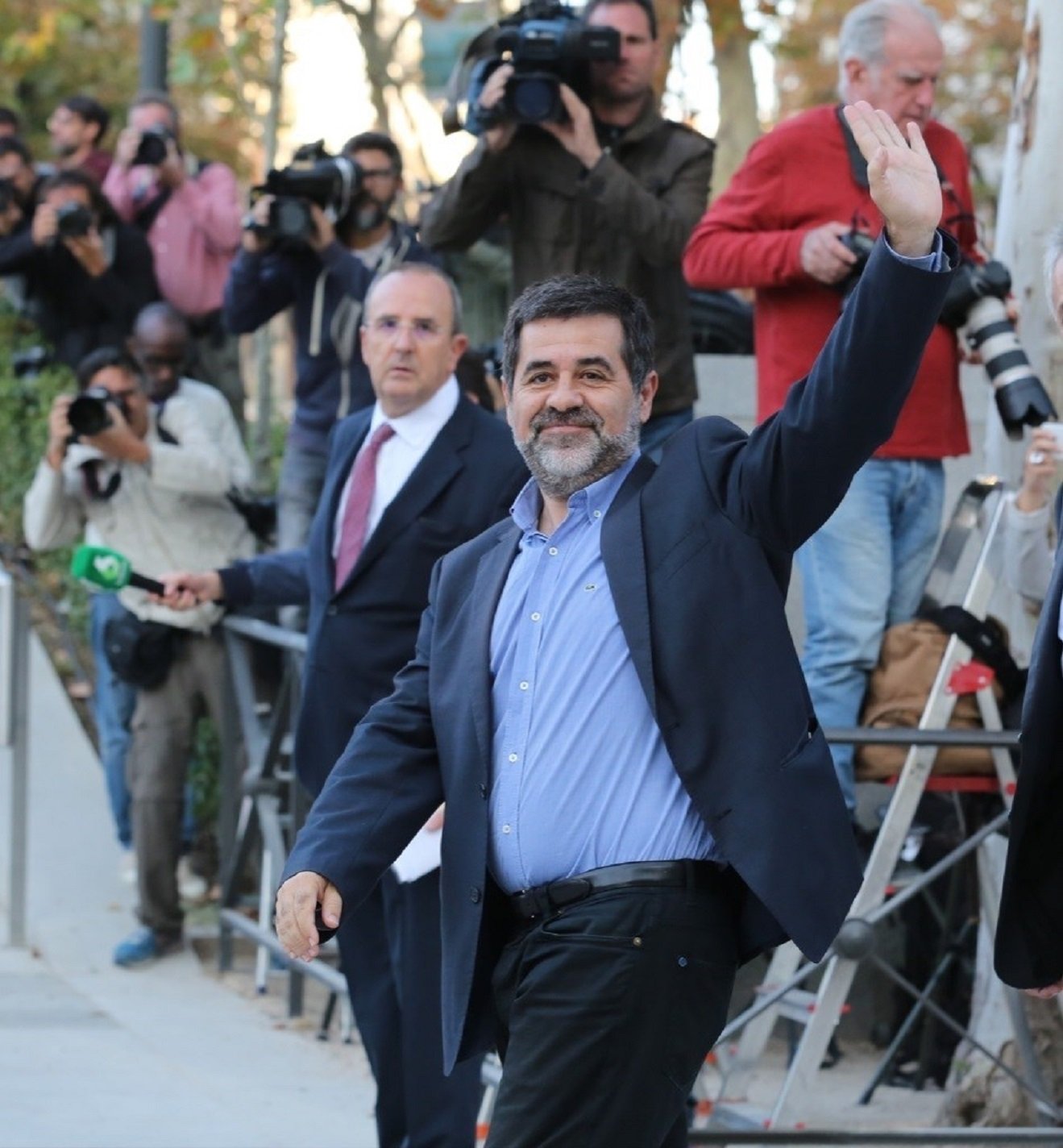Jordi Sànchez, second on Junts per Catalunya's electoral list and former president of the ANC (Catalan National Assembly), spent more than two hours this morning testifying before Supreme Court judge Pablo Llarena. He responded to questions from all parties present except the acusación popular1, represented by VOX, a right-wing Spanish party. Sànchez has been held in preventive detention without bail near Madrid since 16th October last year.
Sànchez said that the 1st October independence referendum had no legal validity and that if the Parliament opts to pursue unilateral independence, he will give up his seat. The former ANC president is a deputy-elect to the new Catalan Parliament for Junts per Catalunya following the 21st December election.
Legal sources say that Sànchez has testified that on 20th September, during the demonstrations in front of the Catalan Economy ministry, "there was no violence, but there was vandalism", referring to the damage caused to Civil Guard vehicles parked in front of the department's headquarters on Barcelona's rambla de Catalunya.
Today, Sànchez testified that he repeatedly asked the crowd to disperse, not only when he was standing on the police vehicles to be seen and heard, but also from the stage set up on Gran Via where concerts were held all afternoon. Sànchez and Jordi Cuixart, president of Òmnium Cultural who is also testifying today, said that the gathering was over around midnight over the stage's sound system.
The former president of ANC also told the judge that "since February 2015 there was a road map between ANC, Òmnium, ERC and CDC". The first two being pro-independence organisations, the second two, political parties.
Sànchez was the first of three imprisoned Catalans to testify today over their roles in the independence movement. This afternoon, his lawyer will present arguments for him to be released on bail pending trial. It's expected that judge Pablo Llarena will likely only announce his decision after the weekend.
Translator's note:
1. An acusación popular, in Spanish Justice, allows for the public to participate in legal proceedings to defend the law, without showing direct personal harm.

